
Find Help
More Items From Ergsy search
-

Do unpaid tax debts affect Inheritance Tax calculations?
Relevance: 100%
-

How is inheritance tax calculated?
Relevance: 65%
-

How is the Inheritance Tax bill calculated?
Relevance: 60%
-

What Happens to Tax Debt After Death? (UK Laws)
Relevance: 57%
-
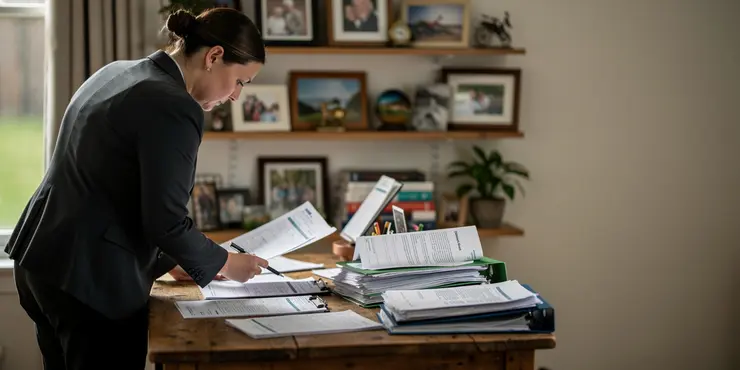
Who is responsible for paying the deceased’s tax debts?
Relevance: 56%
-

Can the executor use the deceased's assets to pay tax debts?
Relevance: 55%
-

What is the role of an executor in handling tax debts?
Relevance: 55%
-

What is the process for paying inheritance tax?
Relevance: 53%
-

When is inheritance tax due?
Relevance: 53%
-

What is Inheritance Tax?
Relevance: 53%
-

What happens if inheritance tax is not paid?
Relevance: 52%
-
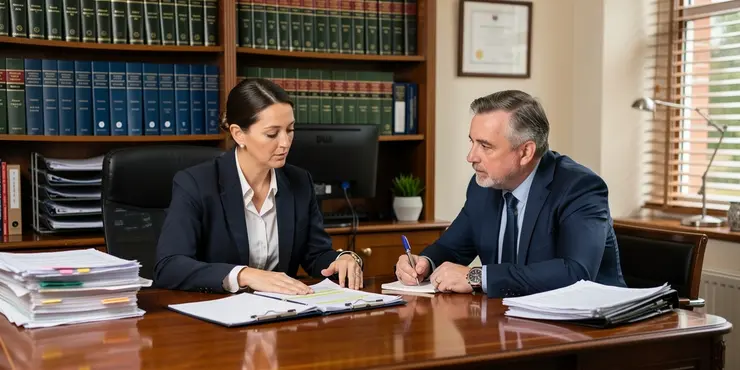
What happens if Inheritance Tax is not paid on time?
Relevance: 52%
-

Can Inheritance Tax be paid in installments?
Relevance: 51%
-

What if the estate does not have enough assets to pay all tax debts?
Relevance: 51%
-

When is inheritance tax due to be paid?
Relevance: 50%
-

Can an inheritance tax bill be challenged or appealed?
Relevance: 50%
-
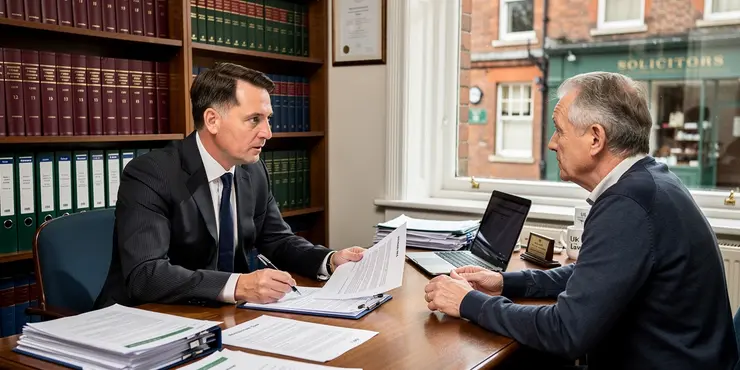
How and when do I pay Inheritance Tax when someone has died?
Relevance: 49%
-

How is a wealth tax typically calculated?
Relevance: 49%
-

Who is responsible for paying Inheritance Tax?
Relevance: 48%
-

What is Inheritance Tax?
Relevance: 48%
-
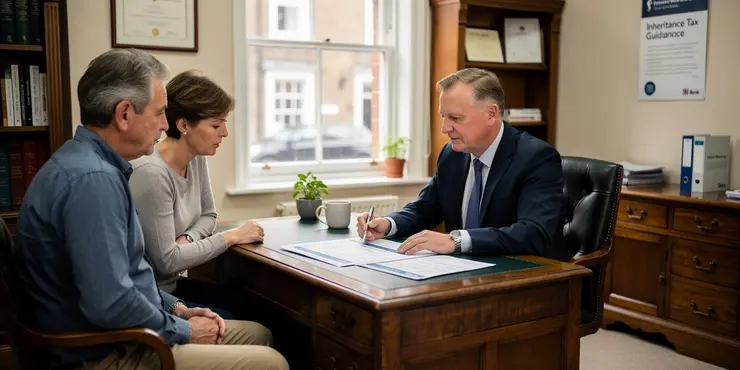
What is inheritance tax?
Relevance: 48%
-

Do I pay Inheritance Tax on a property I inherit?
Relevance: 48%
-

Are there deductions available for inheritance tax?
Relevance: 48%
-

Is there a difference between inheritance tax and estate tax?
Relevance: 48%
-

Who pays the inheritance tax?
Relevance: 47%
-

Is real estate included in wealth tax calculations?
Relevance: 47%
-

Are there tax-free thresholds for inheritance tax?
Relevance: 47%
-

What is inheritance tax in the UK?
Relevance: 47%
-

Can inheritance tax be deferred?
Relevance: 47%
-

What is inheritance tax in the UK?
Relevance: 46%
-

When do I need to pay Inheritance Tax?
Relevance: 46%
-
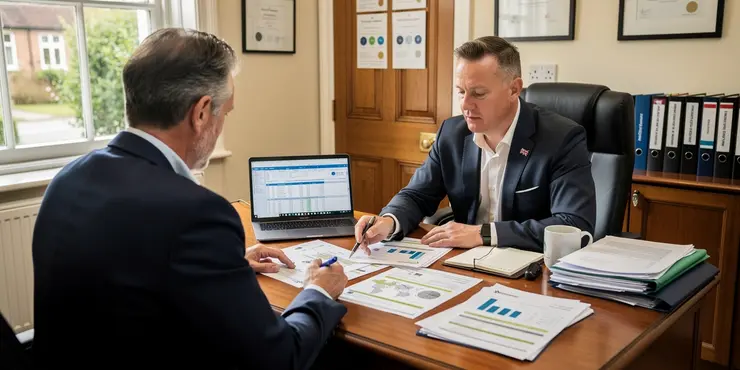
How do I value the estate for Inheritance Tax purposes?
Relevance: 45%
-

What is the '7-year rule' in Inheritance Tax?
Relevance: 44%
-

What forms do I need to complete for Inheritance Tax?
Relevance: 44%
-

What assets are subject to inheritance tax?
Relevance: 44%
-

Does the value of gifts affect Inheritance Tax?
Relevance: 44%
-
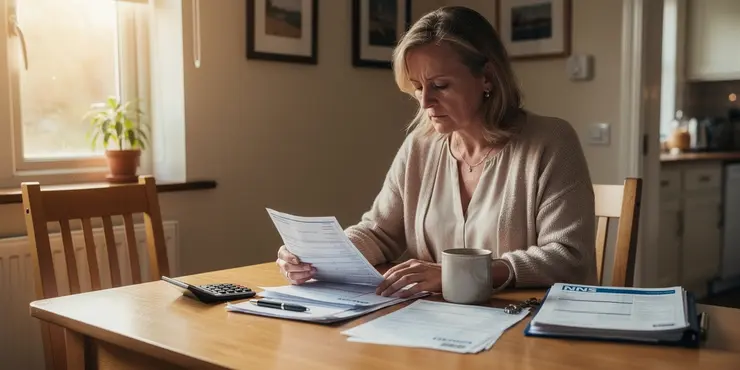
How is Inheritance Tax (IHT) dealt with after death?
Relevance: 43%
-
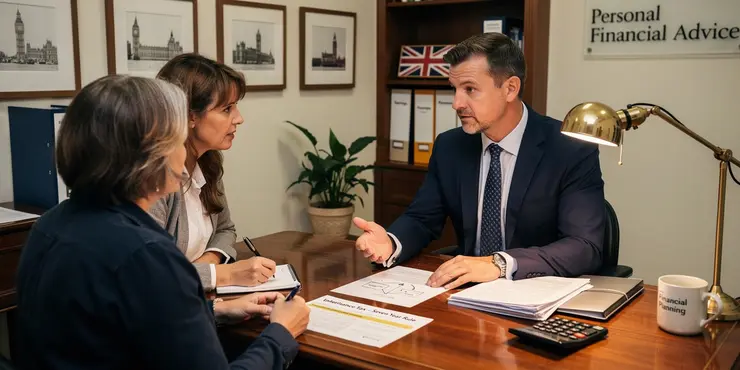
What is the seven-year rule relating to inheritance tax?
Relevance: 43%
-

Where can I find more detailed information on inheritance tax?
Relevance: 43%
-
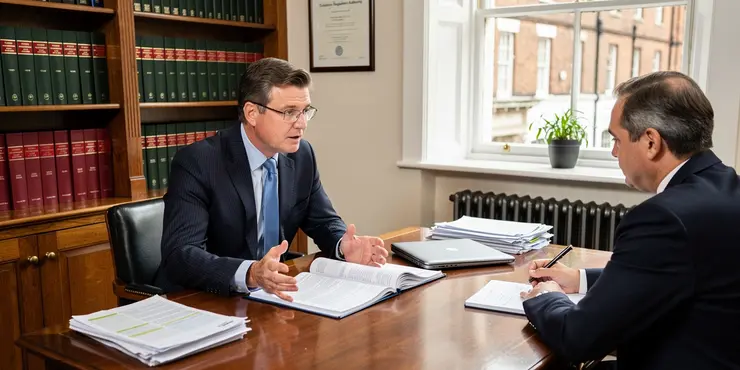
Are there professional advisors for inheritance tax planning?
Relevance: 43%
Introduction: Understanding Inheritance Tax in the UK
Inheritance Tax is a levy on the estate of someone who has died, including all property, possessions, and money. In the UK, Inheritance Tax is charged at 40% on assets above a certain threshold, which is currently £325,000 as of the latest regulations. However, understanding how unpaid tax debts impact Inheritance Tax calculations is essential for effective estate planning and ensuring compliance with UK tax laws.
The Interplay Between Unpaid Tax Debts and Inheritance Tax
When considering the implications of unpaid tax debts on Inheritance Tax calculations, it is crucial to recognize that these debts can directly affect the value of an estate. Debts owed to HM Revenue and Customs (HMRC), including unpaid income taxes, capital gains taxes, or other forms of taxation, are typically considered liabilities of the estate. These debts need to be settled before the estate can be distributed to beneficiaries.
Impact on Estate Valuation
The valuation of the estate for Inheritance Tax purposes occurs before any debts, including outstanding tax liabilities, are deducted. However, the Inheritance Tax due is calculated on the net value of the estate, which is the total value of the estate minus any debts, including unpaid taxes. Therefore, if there are significant unpaid tax debts, they can substantially reduce the net value of the estate, potentially lowering the amount of Inheritance Tax due.
Settling Unpaid Tax Debts
Before any distribution of the estate to beneficiaries occurs, the executor or personal representative of the estate is responsible for settling any outstanding tax liabilities with HMRC. The process involves calculating the accurate total of any unpaid taxes and ensuring these are paid from the estate's funds. This obligation can affect the timing and amount of money available for beneficiaries as the estate essentially takes on the responsibility for these debts before any other distributions.
Potential Issues and Considerations
Having unpaid tax debts can complicate the administration of an estate. Executors must ensure that all tax affairs are in order to avoid potential legal issues or penalties from HMRC. It may also be necessary for executors to seek professional advice to accurately handle complex tax situations, particularly for estates with considerable remaining debt. Additionally, it's vital for individuals planning their estate to be proactive in settling any personal tax obligations before their passing to provide clarity and ease for their beneficiaries.
Conclusion
Unpaid tax debts are a critical factor in Inheritance Tax calculations in the UK. These debts can decrease the net value of an estate, influencing not only the tax dynamics but also the overall inheritance left to beneficiaries. Executors and potential beneficiaries need to be aware of these impacts and ideally address any tax liabilities as part of comprehensive estate planning efforts. Proper management and settlement of tax debts ensure compliance with HMRC regulations and facilitate smoother estate transitions.
Introduction: What is Inheritance Tax in the UK?
Inheritance Tax is a tax on everything a person leaves behind when they die. This includes their house, money, and things they own. In the UK, if the value of all these things is more than £325,000, a tax of 40% might have to be paid. Understanding how unpaid taxes can change this tax amount is important for planning.
Unpaid Tax Debts and Inheritance Tax
If someone owes taxes like income tax or capital gains tax, these debts must be settled before dividing the estate among people who will inherit. These debts can reduce the total value of what the person left behind, changing how much Inheritance Tax needs to be paid.
How Debts Affect Estate Value
When valuing the estate for Inheritance Tax, everything is counted first. Then, debts like taxes are subtracted. This means if there are big unpaid taxes, the final value of the estate becomes less, which might lower the tax owed.
Paying Off Unpaid Taxes
Before giving out any inheritance, the person in charge of the estate must pay any taxes owed to HM Revenue and Customs (HMRC). This might delay when and how much the inheritors get. It’s important to calculate these debts correctly and pay them from the estate's money.
Challenges and Things to Think About
Unpaid taxes can make dealing with an estate more difficult. Executors need to make sure all taxes are paid properly to avoid legal trouble. They might need help from tax professionals if the situation is complicated. It's also good for people to pay their taxes during their life to make things easier for their family.
Conclusion
Unpaid taxes are important when figuring out Inheritance Tax in the UK. They can lower the value of what is left behind, affecting taxes and inheritance. Executors and family members should know how these debts impact inheritance and plan to manage them well. Doing this helps follow rules and makes passing on inheritance smoother.
Frequently Asked Questions
What is Inheritance Tax?
Inheritance Tax is a tax on the estate of someone who has died, including all property, possessions, and money.
Do unpaid tax debts impact the estate's value?
Yes, unpaid tax debts can reduce the value of the estate as they must be paid off before calculating the net estate for Inheritance Tax purposes.
How are unpaid tax debts settled in relation to an estate?
Unpaid tax debts are generally settled by the executor of the estate using funds from the estate before any distributions to heirs.
Are unpaid tax debts deducted before calculating Inheritance Tax?
Yes, debts owed by the deceased, including tax debts, are deducted from the estate's value before Inheritance Tax is calculated.
Could unpaid tax debts lead to a reduction in the amount of Inheritance Tax owed?
Potentially, yes. If debts reduce the estate value below the taxable threshold, it could reduce the Inheritance Tax owed.
Does the executor need to notify tax authorities of unpaid tax debts?
Yes, the executor should notify the tax authorities and settle any unpaid tax debts from the estate.
Can beneficiaries be held liable for unpaid tax debts?
Beneficiaries are generally not liable for the deceased’s unpaid debts, but they may receive a reduced inheritance if the estate must settle these debts.
Do unpaid taxes have to be paid before or after probate?
Unpaid taxes are typically settled during the probate process as part of settling the estate’s liabilities.
What happens if the estate doesn’t have enough assets to cover unpaid debts?
If the estate can’t cover unpaid debts, the debts generally remain unpaid, and the estate may be declared insolvent.
How are unpaid tax debts prioritized with other debts?
Unpaid tax debts are typically given high priority, and the executor should settle them alongside any secured debt.
Will HMRC insist on settling unpaid taxes before calculating Inheritance Tax?
HMRC requires unpaid taxes to be settled to accurately determine the net estate value for Inheritance Tax calculations.
How do unpaid tax debts affect the distribution of the estate?
Unpaid tax debts reduce the net value of the estate, which in turn affects the amount available for distribution to beneficiaries.
What documentation is needed to settle unpaid tax debts during probate?
Documentation including tax returns, notices from tax authorities, and statements outlining the unpaid amounts will be needed.
Are executors personally liable for unpaid tax debts?
Executors are not personally liable but must use estate assets to settle unpaid tax debts appropriately.
Can unpaid tax debts affect the payment timeline of Inheritance Tax?
Yes, unpaid tax debts must be managed, possibly delaying the calculation and payment of Inheritance Tax.
Is there a deadline for settling unpaid tax debts in estate administration?
There is no fixed deadline, but debts should be settled promptly to avoid penalties and facilitate smooth estate administration.
Do unpaid tax debts affect the inheritance threshold?
While they do not change the threshold, unpaid tax debts reduce the estate's value, impacting how the threshold is applied.
Can a payment plan be arranged for unpaid tax debts during probate?
In some cases, payment plans might be negotiated with tax authorities, but prompt settlement is preferred.
How do unpaid tax debts impact the estate’s probate process?
Managing unpaid tax debts is a critical part of the probate process, impacting how soon the estate can be distributed.
What role do tax advisors play in handling unpaid tax debts on estates?
Tax advisors help executors navigate tax laws, ensure compliance, and assist in settling taxes efficiently during probate.
What is Inheritance Tax?
Inheritance Tax is money paid to the government when someone dies. It is a tax on the things they leave behind, like money and houses.
If you need help with reading, you can ask someone to read with you. You can also use text-to-speech tools to listen to the words. Highlighting words as you read can also make it easier.
Inheritance Tax is money you pay on the things a person leaves behind when they die. This includes their house, all of their things, and their money.
Do unpaid taxes change what the estate is worth?
Yes, if there is unpaid tax, it can make the estate worth less because the tax must be paid first before figuring out how much is left for Inheritance Tax.
For help, you can use online tools or ask someone who knows about taxes.
What happens to unpaid taxes when someone passes away?
When a person dies, they might still owe taxes. These taxes have to be paid from their money or stuff (called an estate) before giving anything to family or friends. Here’s how this works:
- First step: Find out how much the person owed in taxes.
- Second step: Use the person’s money or things to pay the taxes.
- Third step: If there isn’t enough money, get help from a tax expert.
It's important to make sure all taxes are paid so that family and friends can receive what is left over. You can use online tax calculators or talk to a tax adviser for help.
When someone dies, they might owe tax money. The person who takes care of their stuff is called the executor. The executor has to use money from what the person left behind to pay taxes first. Only after the taxes are paid, can they give out the rest of the things left to the family or friends.
Do you take away unpaid tax debts before working out Inheritance Tax?
When a person dies, any money they owe, like taxes, is taken away from their things before anyone can pay Inheritance Tax.
Can not paying taxes change how much Inheritance Tax is owed?
If someone has not paid their taxes, it might change how much Inheritance Tax their family needs to pay after they pass away.
To help understand this, you can:
- Ask an adult to explain it to you.
- Use pictures or drawings to make it clearer.
- Find a friend or helper who knows about taxes.
Yes, maybe. If you owe money and it makes what you own worth less, you might pay less tax when you die.
Do executors have to tell tax offices about unpaid taxes?
If a person dies and owes taxes, the person in charge of their stuff (called the 'executor') should let the tax office know.
This helps make sure everything is taken care of properly. It can be a good idea to ask an expert for help with this. They can help the executor understand what to do.
Yes, the person in charge of the will should tell the tax office. They should also pay any tax money that is still owed from the estate.
Do people who get money from a will have to pay tax debts?
People who get money or things from someone who died usually don't have to pay that person's bills. But they might get less money or things if the person who died has to use their money to pay those bills first.
When do you pay unpaid taxes: before or after probate?
If someone dies, you might wonder when their unpaid taxes need to be paid.
Is it before or after probate?
Probate is when a court checks if a person's will is real and fair.
For help, you can ask a tax expert or use online tools.
When someone dies, they may owe money in taxes. This money is paid during a process called probate. Probate helps pay off any money the person owes before their things are given to others.
What if there is not enough money to pay the debts when someone dies?
When someone dies, they might leave behind money and things, called an estate. Sometimes, there are not enough things or money to pay all the debts.
Here is what happens:
- First, the important debts are paid, like funeral costs.
- Next, other debts are paid if there is money left.
- If there is not enough, some debts will not get paid.
If you need help, you can ask someone who knows about money, like a financial advisor.
If there is not enough money to pay off debts after someone dies, those debts usually don't get paid. The estate, which is what the person left behind, might be said to not have enough money.
What happens to unpaid tax debts compared to other debts?
When someone dies, they might owe money for taxes. Paying these taxes is very important. The person in charge should pay these taxes and any other loans that are backed by something valuable.
Do you need to pay any owed taxes before working out Inheritance Tax?
This question asks if you need to pay any taxes you owe before you can figure out the Inheritance Tax.
You might find it helpful to:
- Use a calculator to help with numbers.
- Ask someone to explain the taxes you owe.
- Write down what taxes you need to pay first.
HMRC needs people to pay any taxes they owe. This helps them work out the value of what's left when someone passes away. They use this value to see how much Inheritance Tax might be needed.
What happens to a person's things if they owe tax money when they die?
If someone dies and they owe tax money, that money must be paid before their things (called an estate) can be given to family or friends.
Here is how it works:
- The people in charge of the estate must pay the tax money first.
- Then, what is left can be shared with family and friends.
- If there is not enough money to pay all the taxes, they might have to sell some of the person's things.
If you are doing this job, you might need help. You can ask:
- A lawyer to help you with the rules.
- An accountant to help with the money.
You can also use a computer or a calculator to help with numbers.
When someone owes tax money, it makes their estate worth less. This means there is less money to share with the people who are meant to receive it.
What papers are needed to pay tax debts when someone has died?
You will need some important papers. These include:
- Tax forms you filled out.
- Letters or notes from tax offices.
- Papers showing how much money you still need to pay.
If you need help with these papers, you can ask someone to help you read them. You can also use a computer tool that reads the text out loud for you.
Do executors have to pay tax debts with their own money?
The people who take care of someone’s things after they die are not responsible for paying the taxes with their own money. They need to use the person's things and money left behind to pay any taxes that are owed.
Can not paying taxes on time change when Inheritance Tax is paid?
If you owe taxes you have not paid yet, you need to take care of them. This might make the process of figuring out and paying Inheritance Tax take longer.
Do you need to pay tax debts by a certain time when handling someone's estate?
There is no set time to pay, but it's good to pay debts quickly. This helps avoid extra fees and makes handling the estate easier.
Can unpaid taxes change how much money you can inherit?
Unpaid tax debts make the value of what you leave behind smaller. This can change how any rules about money after you pass away are used.
Can you set up a payment plan for unpaid taxes during probate?
If someone owes tax money when they pass away, their family or helpers might need to pay this money back.
There are ways to make a plan to pay this money slowly. This is called a payment plan.
You can ask for help to set up a payment plan. A tax advisor or probate specialist can be helpful.
This way, you don't have to pay all at once and can manage the payment over time.
Sometimes you can talk to the tax office about paying a bit at a time, but it is better to pay everything quickly if you can.
What happens to the estate if there are taxes that aren't paid?
If a person dies and they didn't pay all their taxes, it can cause problems. The estate might have to pay these taxes before anything is given to family or friends. This means the probate process, which is sorting out their money and belongings, could take longer.
To help with this, you can:
- Use a calculator to figure out how much tax is owed.
- Ask someone like a tax expert or lawyer to help understand what to do.
Taking care of unpaid tax debts is very important. It helps with sharing what is left in the will or estate more quickly.
How can tax helpers help with unpaid taxes on a person's things after they die?
Tax advisors are people who help you understand tax rules. They make sure you follow the rules when someone has passed away. They also help you pay any taxes you need to pay.
Useful Links
This website offers general information and is not a substitute for professional advice.
Always seek guidance from qualified professionals.
If you have any medical concerns or need urgent help, contact a healthcare professional or emergency services immediately.
Some of this content was generated with AI assistance. We’ve done our best to keep it accurate, helpful, and human-friendly.
- Ergsy carfully checks the information in the videos we provide here.
- Videos shown by Youtube after a video has completed, have NOT been reviewed by ERGSY.
- To view, click the arrow in centre of video.
- Most of the videos you find here will have subtitles and/or closed captions available.
- You may need to turn these on, and choose your preferred language.
- Go to the video you'd like to watch.
- If closed captions (CC) are available, settings will be visible on the bottom right of the video player.
- To turn on Captions, click settings .
- To turn off Captions, click settings again.
More Items From Ergsy search
-

Do unpaid tax debts affect Inheritance Tax calculations?
Relevance: 100%
-

How is inheritance tax calculated?
Relevance: 65%
-

How is the Inheritance Tax bill calculated?
Relevance: 60%
-

What Happens to Tax Debt After Death? (UK Laws)
Relevance: 57%
-

Who is responsible for paying the deceased’s tax debts?
Relevance: 56%
-

Can the executor use the deceased's assets to pay tax debts?
Relevance: 55%
-

What is the role of an executor in handling tax debts?
Relevance: 55%
-

What is the process for paying inheritance tax?
Relevance: 53%
-

When is inheritance tax due?
Relevance: 53%
-

What is Inheritance Tax?
Relevance: 53%
-

What happens if inheritance tax is not paid?
Relevance: 52%
-

What happens if Inheritance Tax is not paid on time?
Relevance: 52%
-

Can Inheritance Tax be paid in installments?
Relevance: 51%
-

What if the estate does not have enough assets to pay all tax debts?
Relevance: 51%
-

When is inheritance tax due to be paid?
Relevance: 50%
-

Can an inheritance tax bill be challenged or appealed?
Relevance: 50%
-

How and when do I pay Inheritance Tax when someone has died?
Relevance: 49%
-

How is a wealth tax typically calculated?
Relevance: 49%
-

Who is responsible for paying Inheritance Tax?
Relevance: 48%
-

What is Inheritance Tax?
Relevance: 48%
-

What is inheritance tax?
Relevance: 48%
-

Do I pay Inheritance Tax on a property I inherit?
Relevance: 48%
-

Are there deductions available for inheritance tax?
Relevance: 48%
-

Is there a difference between inheritance tax and estate tax?
Relevance: 48%
-

Who pays the inheritance tax?
Relevance: 47%
-

Is real estate included in wealth tax calculations?
Relevance: 47%
-

Are there tax-free thresholds for inheritance tax?
Relevance: 47%
-

What is inheritance tax in the UK?
Relevance: 47%
-

Can inheritance tax be deferred?
Relevance: 47%
-

What is inheritance tax in the UK?
Relevance: 46%
-

When do I need to pay Inheritance Tax?
Relevance: 46%
-

How do I value the estate for Inheritance Tax purposes?
Relevance: 45%
-

What is the '7-year rule' in Inheritance Tax?
Relevance: 44%
-

What forms do I need to complete for Inheritance Tax?
Relevance: 44%
-

What assets are subject to inheritance tax?
Relevance: 44%
-

Does the value of gifts affect Inheritance Tax?
Relevance: 44%
-

How is Inheritance Tax (IHT) dealt with after death?
Relevance: 43%
-

What is the seven-year rule relating to inheritance tax?
Relevance: 43%
-

Where can I find more detailed information on inheritance tax?
Relevance: 43%
-

Are there professional advisors for inheritance tax planning?
Relevance: 43%


